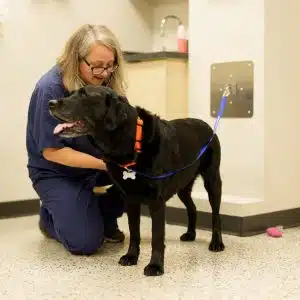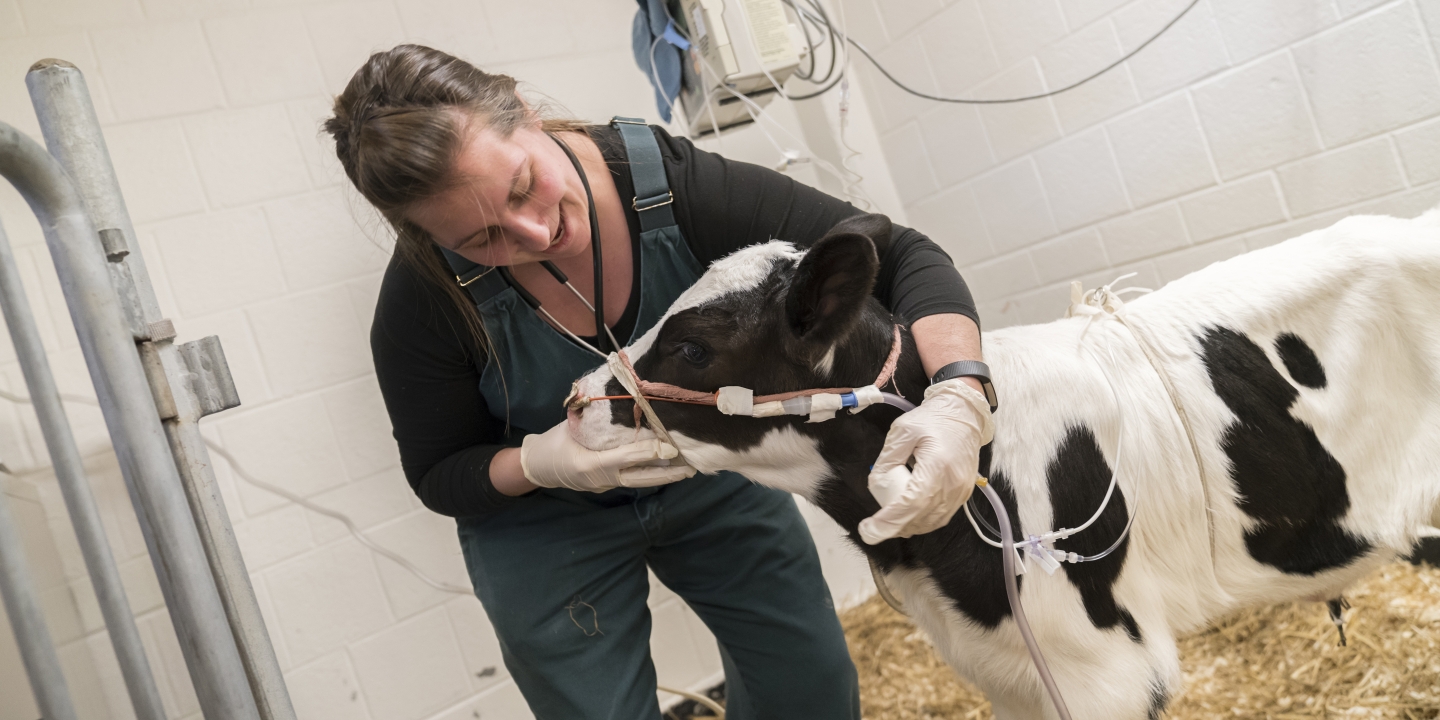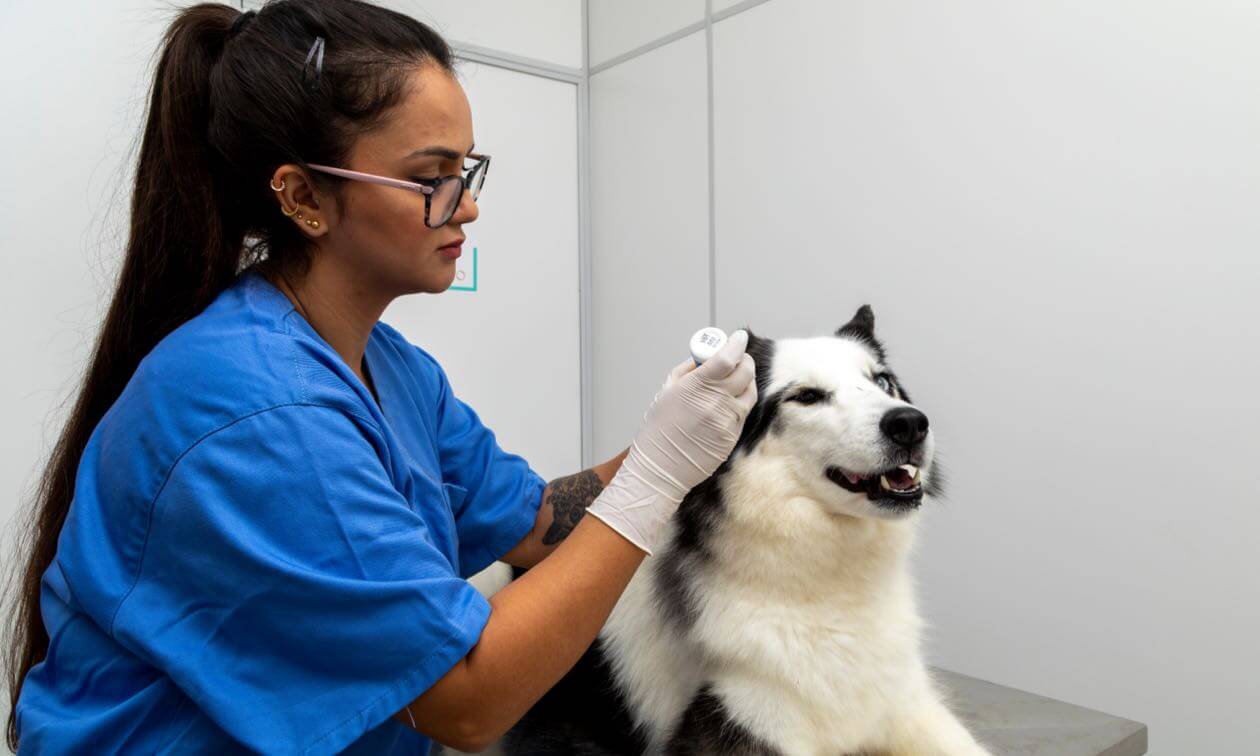Complete guide to Veterinary Oncology Services available in Houston
Exactly How a Vet Oncologist Can Aid Improve Your Pet dog's High quality of Life
Vet oncologists focus on the diagnosis and treatment of cancer cells in animals, playing a vital function in boosting their top quality of life. They develop personalized therapy strategies that resolve the one-of-a-kind demands of each pet. With sophisticated diagnostics and targeted treatments, these specialists aim to handle symptoms effectively. Nonetheless, the journey does not end there. Discovering the complete range of care options discloses more concerning just how these experts can make a significant difference.

Recognizing the Function of a Veterinary Oncologist

In enhancement to diagnosis, vet oncologists develop extensive therapy techniques customized to the needs of each pet. These approaches may include radiation treatment, radiation therapy, and surgical treatments, intended at not just expanding survival however likewise improving the overall lifestyle. They supply palliative treatment, focusing on pain administration and comfort for animals dealing with incurable medical diagnoses. By collaborating with animal owners, vet oncologists ensure that pets obtain the most efficient and thoughtful treatment feasible throughout their cancer cells trip.
Tailored Treatment Plans for Your Pet dog
When an animal is diagnosed with cancer, establishing a tailored treatment strategy becomes crucial for addressing their one-of-a-kind needs and conditions. A vet oncologist very carefully reviews the kind of cancer cells, its stage, and the general wellness of the pet dog. This complete evaluation permits the development of a tailored method that may consist of a mix of surgical procedure, radiation treatment, and radiation treatment.
The oncologist additionally takes into consideration the pet dog proprietor's choices and way of living, making sure that the strategy lines up with their goals for their pet's treatment. Veterinary Cancer Specialist. Therapy plans are not static; they are regularly reviewed and readjusted based upon the animal's reaction and any arising demands. By concentrating on personalized care, vet oncologists aim to enhance the performance of therapies while maintaining the pet's lifestyle. This individualized method fosters a far better understanding of the disease, encouraging family pet owners to make enlightened decisions concerning their cherished companions' wellness
Handling Symptoms and Adverse Effects
Managing the signs and negative effects of cancer treatment is a vital element of vet oncology. Vet oncologists utilize a range of strategies to minimize pain and enhance the general wellness of pet dogs undergoing treatment. This might consist of making use of anti-nausea medicines to deal with throwing up and loss of appetite, which are typical negative effects of radiation treatment. Pain management is likewise focused on, usually involving the prescription of analgesics tailored to the family pet's details demands.
On top of that, oncologists may recommend dietary modifications, integrating high-grade, easily digestible foods to support nutritional intake. Keeping track of blood work is crucial to find any kind of damaging responses to therapy early, enabling timely interventions. Regular follow-ups enable the vet group to analyze the pet's feedback to therapy and make necessary modifications. Through these comprehensive strategies, vet oncologists intend to enhance the quality of life for animals encountering cancer cells treatment challenges.
Palliative Treatment and Convenience Procedures
Palliative treatment plays a crucial duty in improving the lifestyle for pets diagnosed with cancer cells, concentrating on comfort and emotional support instead of curative treatment. Veterinary oncologists prioritize pain management, ensuring that family pets experience marginal pain during their illness. This includes the use of weblink analgesics, anti-nausea drugs, and other treatments customized to specific needs.
In addition to pharmacological treatments, ecological alterations can significantly boost an animal's lifestyle. Developing a tranquility, comfortable room with soft bed linen and very easy access to food and water can relieve anxiety. Nutritional assistance is additionally vital; oncologists may recommend specialized diet plans that satisfy the pet's choices and needs.
Emotional support for both the pet and its proprietors is essential. Veterinary oncologists supply support on coping strategies, aiding family members browse the psychological obstacles that go along with a cancer cells diagnosis. Ultimately, palliative care goals to assure that animals obtain the self-respect and convenience they deserve.
Teaming up With Your Regular Vet
Cooperation with a regular vet is essential for maximizing the treatment of animals with cancer cells, as this partnership guarantees a detailed strategy to treatment and lifestyle. The routine veterinarian normally has an in-depth understanding of the pet dog's clinical history, which is vital when creating a therapy strategy. They can successfully communicate with the vet oncologist, making sure that all facets of the pet's wellness are considered.
This cooperation enables coordinated care, which might include routine exams, keeping an eye on negative effects, and readjusting medicines as needed. Routine vets can also supply emotional support to pet dog proprietors, helping them navigate the complexities of cancer cells treatment - Pet Cancer Surgery. By working very closely with veterinary oncologists, they can promote a seamless change in between various sorts of treatment, making certain that family pets obtain one of the most efficient treatments while keeping their convenience and health throughout the process. Together, they enhance the overall high quality of life for family pets dealing with cancer cells
Often Asked Inquiries

What Kinds of Cancers Cells Do Veterinary Oncologists Typically Deal With in Pet Dogs?
Veterinary oncologists normally treat different cancers cells in pets, consisting of lymphoma, mast cell lumps, osteosarcoma, and soft cells sarcomas. These experts utilize sophisticated diagnostic strategies and treatment choices to address the specific requirements of each animal.
How Can I Prepare My Animal for a Vet Oncology Visit?
Preparing a pet dog for a vet oncology consultation involves gathering clinical documents, noting symptoms, and preparing inquiries. Making sure the animal is tranquil and comfy during traveling can additionally substantially enhance the overall experience and assessment effectiveness.
Exist Any Different Therapies for Pets With Cancer cells?
Alternate therapies for pets with cancer commonly consist of acupuncture, organic medication, and dietary assistance. These methods may match conventional treatments, potentially improving general well-being and giving encouraging care throughout the family pet's cancer cells journey.
Just how Typically Should My Pet See the Vet Oncologist?
The frequency of sees to a vet oncologist generally depends on the family pet's details condition and treatment plan. Regular analyses might be advised every few weeks or months to check progress and readjust treatments accordingly.
What Costs Are Connected With Vet Oncology Services?
Costs connected with vet oncology services can differ extensively, including preliminary appointments, analysis tests, treatment strategies, and ongoing treatment. Pet Cancer Surgery. Pet proprietors must prepare for potential costs that mirror the intricacy and duration of the therapy needed
Vet oncologists specialize in the diagnosis see here now and treatment of Visit This Link cancer cells in pets, playing a vital duty in enhancing their quality of life. Numerous pet dog owners might not be acquainted with the details of vet oncology, understanding the duty of a vet oncologist is essential for managing cancer cells in pet dogs. The oncologist likewise takes into consideration the pet dog owner's preferences and way of living, making sure that the plan straightens with their objectives for their animal's care. By focusing on customized treatment, veterinary oncologists aim to boost the efficiency of treatments while keeping the pet's high quality of life. By working closely with veterinary oncologists, they can facilitate a smooth shift between different kinds of treatment, making certain that family pets get the most reliable therapies while preserving their convenience and well-being throughout the procedure.